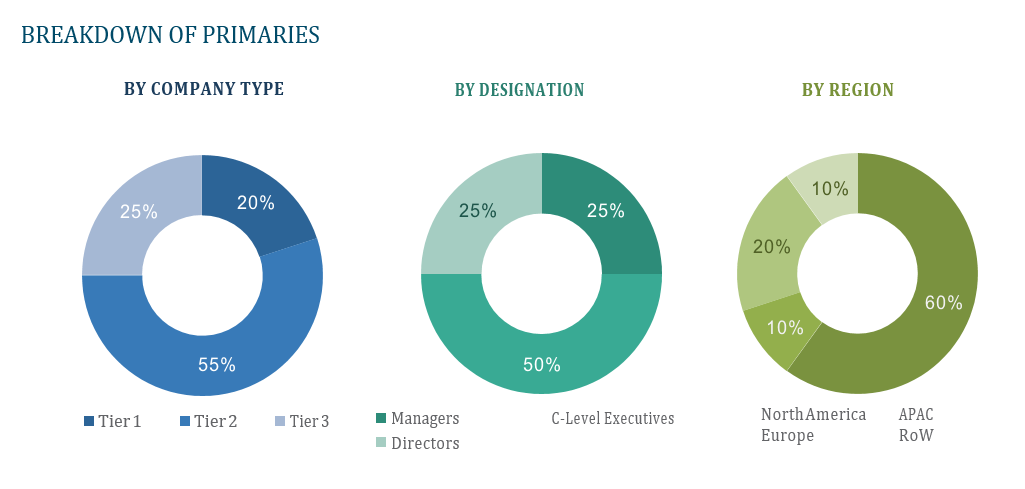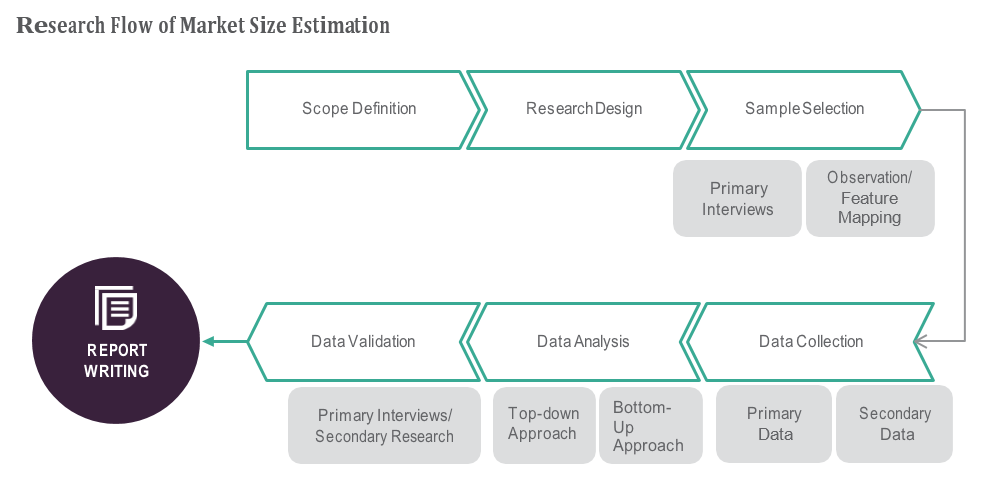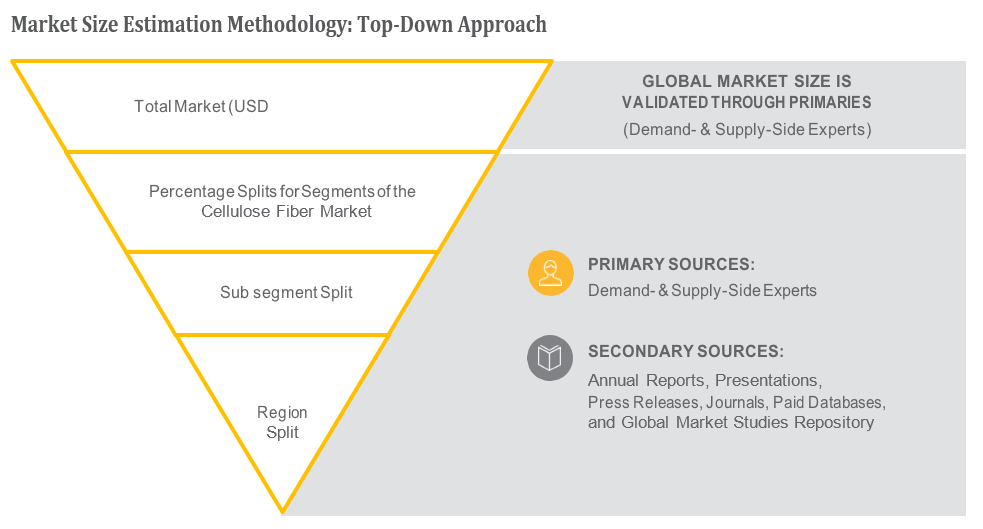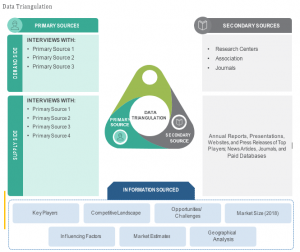OVERVIEW
The Sustainable Manufacturing Market is projected to experience substantial growth with its market valuation anticipated to increase from USD 400 billion in 2024 to an estimated USD 670 billion by 2029, reflecting a compound annual growth rate (CAGR) of 11.0% during the forecast period. Sustainable manufacturing involves the creation of manufactured products through economically-sound processes that minimize negative environmental impacts while conserving energy and natural resources. This approach not only focuses on the environmental aspects but also emphasizes enhancing employee, community, and product safety.
The market’s expansion is driven by the increasing demand for environmentally friendly manufacturing processes, advancements in sustainable technologies, and the growing emphasis on corporate social responsibility (CSR). The rising adoption of sustainable practices in various industries such as automotive, electronics, consumer goods, and healthcare further bolsters market growth. However, challenges such as high implementation costs, regulatory hurdles, and the need for continuous innovation to meet evolving industry standards must be addressed to sustain market momentum.
Geographically, the North America region dominates the sustainable manufacturing market due to its advanced technological infrastructure, significant investments in green technologies, and a growing emphasis on reducing carbon footprints. Europe and Asia Pacific also hold substantial market shares driven by regulatory support and strong demand for sustainable solutions. However, the market faces challenges such as regulatory compliance, high production costs, and the need for ongoing innovation to enhance performance and reduce costs.
Table of Content
Market Dynamics
Drivers:
The growth of the sustainable manufacturing market is primarily driven by the increasing demand for environmentally friendly manufacturing processes. As global concerns about environmental sustainability and the impact of industrial activities on climate change continue to rise, there is a growing need for manufacturing practices that minimize environmental impact. Sustainable manufacturing aims to reduce waste, lower emissions, and conserve energy, making it a crucial strategy for companies looking to reduce their carbon footprint and promote environmental stewardship. In the automotive industry, sustainable manufacturing practices include the use of recyclable materials, energy-efficient production processes, and the development of electric vehicles. In the electronics industry, sustainable manufacturing involves reducing electronic waste through recycling programs and designing products with longer lifespans. This growing demand for environmentally friendly manufacturing processes is a key driver of the sustainable manufacturing market.
Advancements in sustainable technologies are also significant drivers of market growth. Innovations in renewable energy, waste management, and resource-efficient production processes are enhancing the sustainability of manufacturing operations. Renewable energy technologies, such as solar and wind power, provide clean energy sources for manufacturing facilities, reducing reliance on fossil fuels and lowering greenhouse gas emissions. Advanced waste management technologies, such as recycling and composting, help manufacturers minimize waste generation and promote the circular economy. Resource-efficient production processes, such as additive manufacturing and lean manufacturing, optimize the use of materials and energy, reducing waste and improving efficiency. These technological advancements are driving the demand for sustainable manufacturing solutions in various industries.
The growing emphasis on corporate social responsibility (CSR) is another key driver for the market. With increasing awareness of the social and environmental impacts of business activities, there is a strong focus on developing sustainable practices that benefit society and the environment. Companies are increasingly recognizing the importance of sustainability in enhancing their reputation, gaining consumer trust, and ensuring long-term business success. Sustainable manufacturing practices contribute to CSR by promoting environmental protection, improving worker safety, and supporting local communities. In the consumer goods industry, companies are adopting sustainable packaging solutions, reducing plastic use, and sourcing materials responsibly. In the healthcare industry, sustainable manufacturing practices involve reducing the environmental impact of pharmaceutical production and medical waste. This growing focus on corporate social responsibility is further propelling the demand for sustainable manufacturing solutions.
Key Opportunities :
The sustainable manufacturing market presents numerous opportunities for growth and innovation, particularly in the development of advanced sustainable technologies and integrated manufacturing solutions. The increasing focus on environmental sustainability and the need to create efficient and eco-friendly manufacturing processes are driving research and development efforts towards innovative sustainable manufacturing solutions. The development and commercialization of high-performance renewable energy technologies, advanced waste management systems, and resource-efficient production processes present significant growth opportunities. These advanced technologies offer improved performance, energy efficiency, and environmental benefits, making them attractive options for various manufacturing applications.
The expansion of the sustainable manufacturing market into emerging economies offers significant growth potential. Rapid industrialization, urbanization, and increasing investments in green infrastructure in countries such as China, India, Brazil, and South Africa are driving the demand for sustainable manufacturing solutions in various sectors. The rising consumer awareness of environmental issues and the preference for eco-friendly products in these regions are also contributing to the growth of the market. Manufacturers have the opportunity to tap into these growing markets by offering cost-effective, high-performance sustainable manufacturing solutions that meet the specific needs and regulatory requirements of emerging economies.
The increasing focus on digitalization and advanced manufacturing techniques offers promising prospects for the sustainable manufacturing market. The adoption of advanced manufacturing technologies such as precision engineering, real-time monitoring, and automation is driving the demand for sustainable manufacturing systems with precise application properties and enhanced performance characteristics. The development of smart manufacturing systems with sensors and connectivity features is also enabling real-time monitoring and optimization of manufacturing processes. The integration of digital technologies in sustainable manufacturing processes is expected to enhance production efficiency, reduce waste, and improve product quality, further driving market growth.
Restraints :
High implementation costs are a significant restraint for the market. The transition to sustainable manufacturing practices involves significant capital investment in renewable energy technologies, waste management systems, and resource-efficient production processes. The high initial investment required for implementing sustainable manufacturing solutions can be a barrier for small and medium-sized enterprises (SMEs) and new market entrants. Additionally, the cost of high-performance materials, such as biodegradable plastics and recycled metals, contributes to the overall production cost. Manufacturers must develop cost-effective solutions and provide flexible financing options to make sustainable manufacturing technologies more accessible to a wider range of customers.
Regulatory hurdles related to environmental standards and compliance also present challenges for the market. The increasing reliance on sustainable manufacturing practices raises concerns about regulatory compliance and the ability to meet stringent environmental standards. Public and regulatory scrutiny on manufacturing activities necessitates robust measures to ensure compliance with environmental regulations and standards. Manufacturers must invest in compliance technologies and develop comprehensive regulatory strategies to address these concerns.
Environmental concerns related to the production and disposal of sustainable manufacturing technologies also present challenges for the market. The production of renewable energy technologies and resource-efficient production processes involves processes that can generate waste and emissions, posing environmental and health risks. Additionally, the disposal of sustainable manufacturing technologies at the end of their life cycle poses challenges related to waste management and recycling. The increasing regulatory scrutiny on the environmental impact of manufacturing activities and the growing demand for sustainable products necessitate the development of more eco-friendly production practices. Manufacturers must invest in research and development to create advanced formulations and production methods that meet regulatory standards and address environmental concerns.
Regional Information:
• North America
North America remains a significant market for sustainable manufacturing, characterized by advanced technological innovation, a mature industrial infrastructure, and strong consumer demand for eco-friendly products. The region’s robust regulatory framework and increasing investments in green technologies drive market growth. However, competition from traditional manufacturing methods and the need for skilled labor pose challenges, requiring continuous innovation and cost-reduction strategies.
• Europe
Europe leads in the adoption of sustainable and environmentally friendly manufacturing practices, driven by stringent environmental regulations, strong governmental support, and high consumer awareness. The region’s commitment to reducing carbon emissions and enhancing industrial sustainability fuels the demand for advanced sustainable manufacturing solutions. However, economic uncertainties and the need for technological advancements necessitate strategic planning and risk management to navigate the market landscape effectively.
• Asia Pacific
The Asia Pacific region is expected to witness the highest growth rate in the sustainable manufacturing market due to its large population, rapid industrialization, and significant investments in green infrastructure. Countries like China, India, and Japan are investing heavily in advanced sustainable manufacturing technologies and sustainable solutions, driving the demand for high-performance sustainable manufacturing systems. However, challenges related to regulatory compliance, high production costs, and the need for skilled labor necessitate localized strategies and market insights for successful market penetration.
Recent Developments:
In November 2023, EDF chose Veolia’s technological solution, in partnership with REEL, for the design, manufacture, and installation of mobile units to treat contaminated water in case of a nuclear accident.
In April 2023, The company enhanced Ingeo biopolymer for hygiene applications with Ingeo 6500D for nonwovens. This solution provides enhanced softness, strength, and improved fluid management with optimized hydrophilic surface finish technology.
Key market Players:
General Electric Company, Siemens AG, Schneider Electric SE, Rockwell Automation, Inc., and ABB Ltd.
Frequently Asked Questions
1) What is the projected market value of the Sustainable ManufacturingMarket?
– The Sustainable ManufacturingMarket is expected to reach an estimated value of USD 670 billion in revenue by 2029.
2) What is the estimated CAGR of the Sustainable ManufacturingMarket over the 2024 to 2029 forecast period?
– The CAGR is estimated to be 11.0% for the Sustainable ManufacturingMarket over the 2024 to 2029.
3) Who are the key players in the Sustainable ManufacturingMarket?
– General Electric Company, Siemens AG, Schneider Electric SE, Rockwell Automation, Inc., and ABB Ltd.
4) What are the drivers for the Sustainable ManufacturingMarket?
– The primary drivers for the Sustainable Manufacturing Market include the increasing demand for environmentally friendly manufacturing processes, advancements in sustainable technologies, and the growing emphasis on corporate social responsibility. Sustainable manufacturing practices provide the necessary tools to minimize environmental impact, reduce waste, and conserve energy, ensuring compliance with environmental regulations and enhancing corporate reputation. The adoption of high-performance sustainable manufacturing systems in sectors such as automotive, electronics, consumer goods, and healthcare further drives market growth.
5) What are the restraints and challenges in the Sustainable ManufacturingMarket?
– The Sustainable Manufacturing Market faces several challenges, including high implementation costs, regulatory hurdles, and environmental issues. The transition to sustainable manufacturing practices involves significant capital investment in renewable energy technologies, waste management systems, and resource-efficient production processes, which can be a barrier for small and medium-sized enterprises (SMEs). Regulatory hurdles related to environmental standards and compliance raise concerns about regulatory scrutiny and the ability to meet stringent environmental regulations. Environmental concerns related to the production and disposal of sustainable manufacturing technologies also necessitate the development of eco-friendly practices. Overcoming these challenges through continuous innovation and investment in sustainable solutions is crucial for the market’s growth.
6) What are the key applications and offerings of the Sustainable ManufacturingMarket?
– Sustainable manufacturing involves the creation of manufactured products through economically-sound processes that minimize negative environmental impacts while conserving energy and natural resources. Key applications include automotive, electronics, consumer goods, and healthcare, where sustainable manufacturing practices offer improved environmental performance, energy efficiency, and resource conservation. The development of advanced renewable energy technologies, high-performance waste management systems, and innovative resource-efficient production processes further enhances the performance, efficiency, and environmental benefits of these products. The adoption of smart sustainable manufacturing systems with real-time monitoring and optimization capabilities is also driving advancements in industrial sustainability.
7) Which region is expected to drive the market for the forecast period?
– Asia pacific is expected to have the highest market growth from 2024 to 2029
Why Choose Us?
Insights into Market Trends: Global Market Studies reports provide valuable insights into market trends, including market size, segmentation, growth drivers, and market dynamics. This information helps clients make strategic decisions, such as product development, market positioning, and marketing strategies.
Competitor Analysis: Our reports provide detailed information about competitors, including their market share, product offerings, pricing, and competitive strategies. This data can be used to inform competitive strategies and to identify opportunities for growth and expansion.
Industry Forecasts: Our reports provide industry forecasts, which will inform your business strategies, such as investment decisions, production planning, and workforce planning. These forecasts can help you to prepare for future trends and to take advantage of growth opportunities.
Access to Industry Experts: Our solutions include contributions from industry experts, including analysts, consultants, and subject matter experts. This access to expert insights can be valuable for you to understand the market.
Time and Cost Savings: Our team at Global Market Studies can save you time and reduce the cost of conducting market research by providing comprehensive and up-to-date information in a single report, avoiding the need for additional market research efforts.












